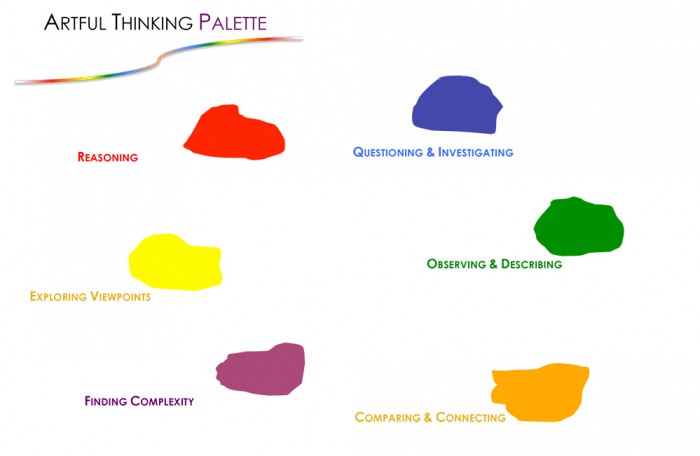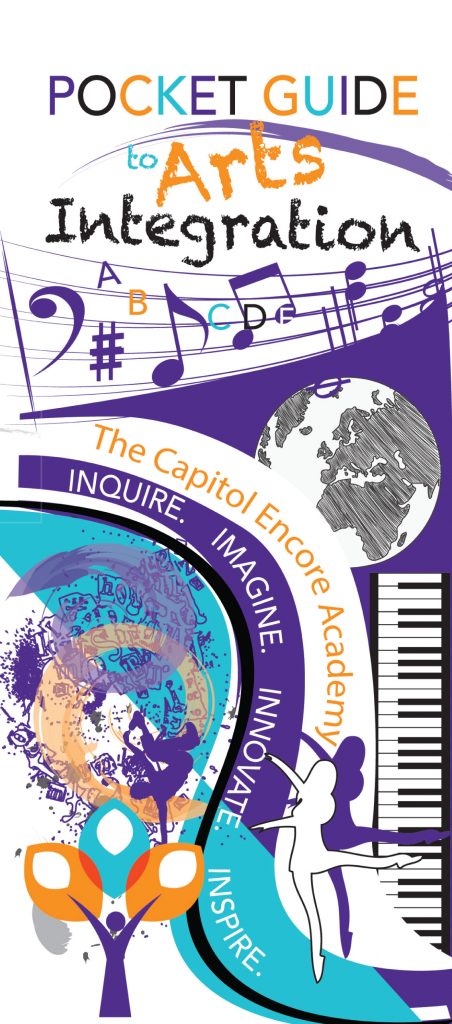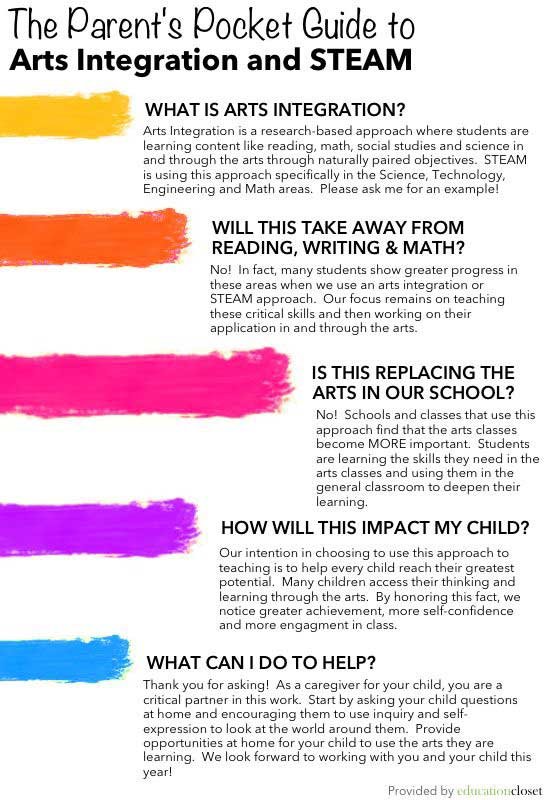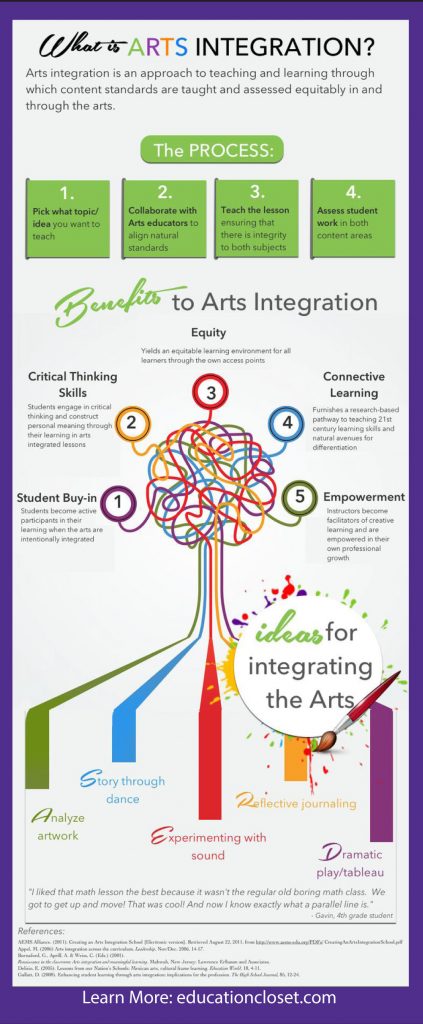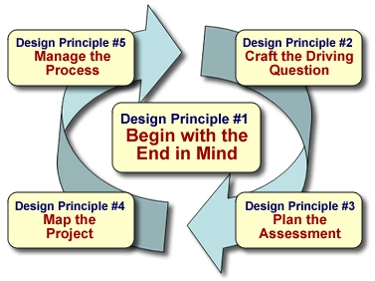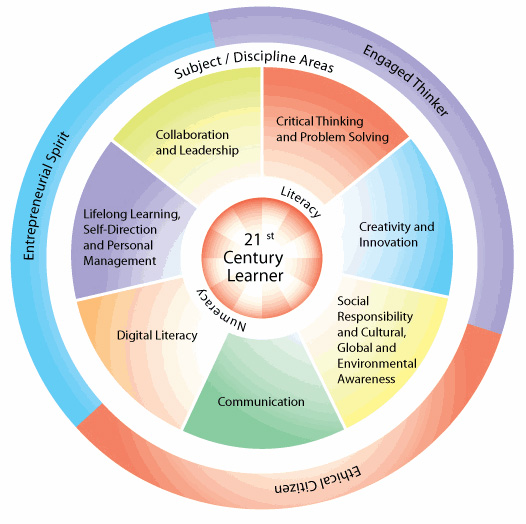TCEA embraces an arts integrated approach to learning. Arts integrated education harnesses the natural joy of creating, the power of critical thinking, problem-solving, and abstract thought, and gives students skills to successfully navigate a 21st century world.
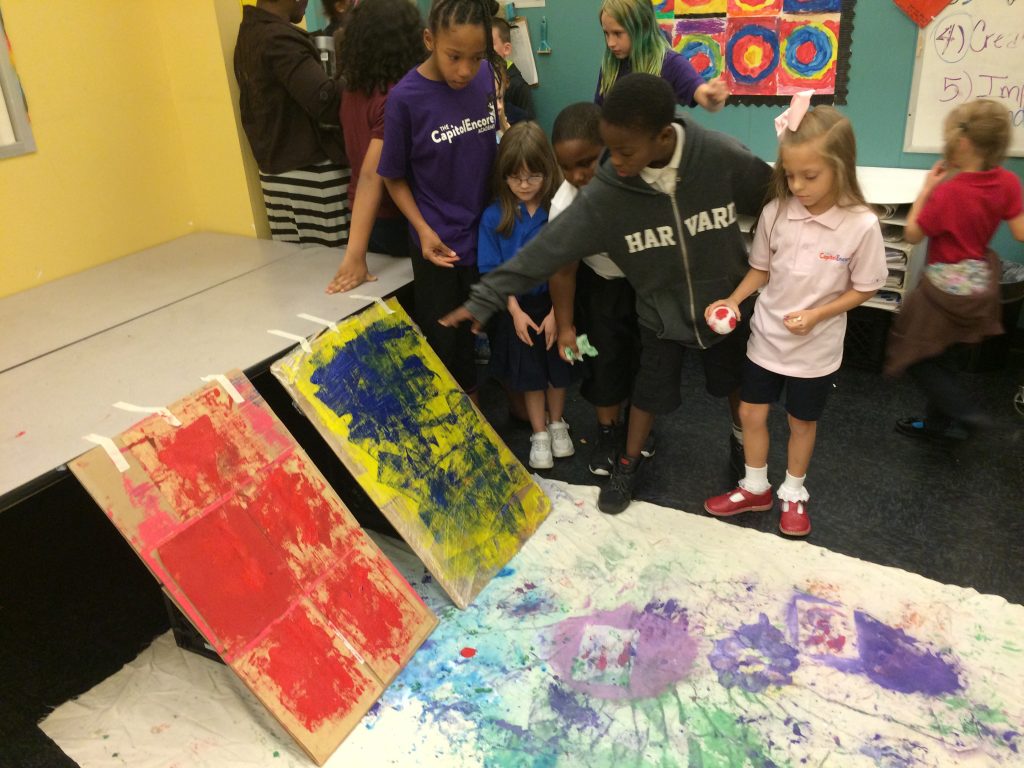
In addition to core academics, all K-5th grade students attend foundational courses with professional working artists (art specialists) who choose to embrace teaching as a part of their own creative practice. 6th-8th grade students choose to focus on specific arts as an elective. These courses teach students the needed skills to grow in their areas of interest:
- Visual Art
- Film & Theatre
- Music
- Dance
- STEAM
- (Science, Technology, Engineering, Art & Math)
Both core and arts courses are given equal weight and are graded with equal expectations, using standards-based grading. While not every lesson uses the arts lens, it is the goal of TCEA teachers to integrate the arts and core academics whenever possible.
Students also participate in Integration Studio. During integration studio, classroom teachers, arts specialists, administration/support staff and our school counselor team-teach through a multidisciplinary approach to arts integration in rotating blocks. These integrate units combine one or more core standards with one or more art standards, with consideration for 21st century skills and social-emotional learning. Students are assessed and have the opportunity to perform and present their integration studio projects at the end of each block to other grade levels. Students also present to parents during Integration Night, giving them the opportunity to share these projects with TCEA families.
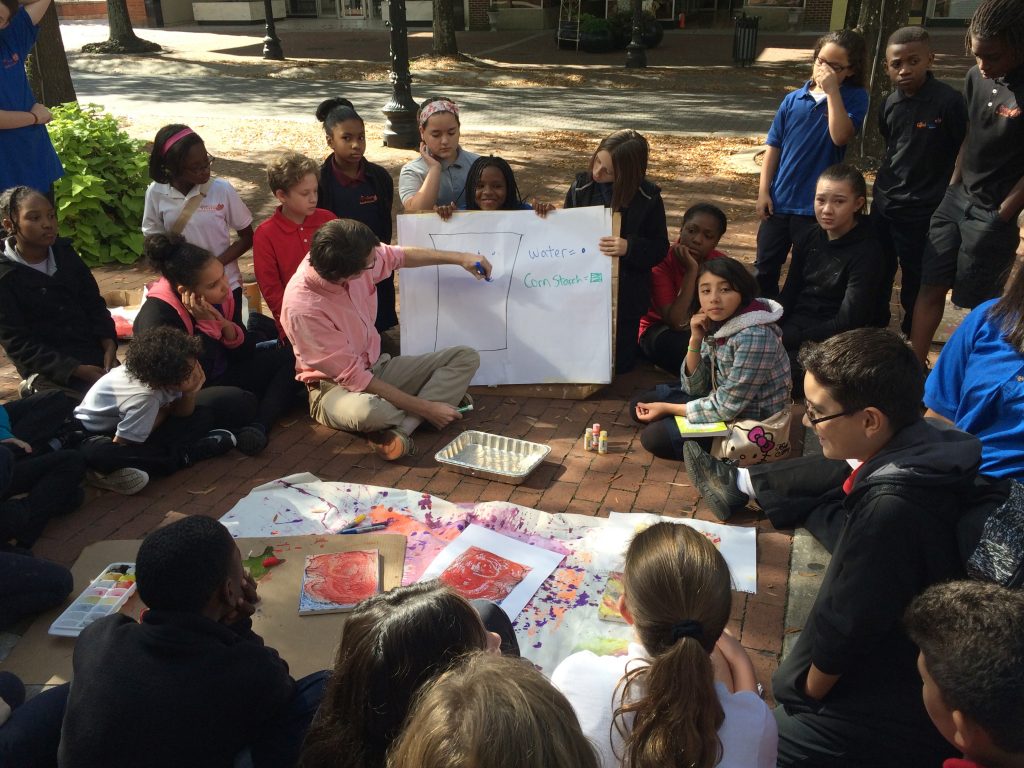 With TCEA’s focus on integrating the arts into core academics, students are more engaged and master concepts through a hands-on process, creating a deeper foundation for learning. Arts integration approaches are widely researched and TCEA embraces innovative approaches to education within a positive learning environment that care for the development of the whole child. Art is not simply a tool for teaching. A true pursuit of artistic study requires effort, preparation and personal responsibility. Within the arts exists the ability to think critically about all content, to discover creative solutions to challenges in an ever-changing world, to understand multiple perspectives, and the opportunity for growth in all areas of life.
With TCEA’s focus on integrating the arts into core academics, students are more engaged and master concepts through a hands-on process, creating a deeper foundation for learning. Arts integration approaches are widely researched and TCEA embraces innovative approaches to education within a positive learning environment that care for the development of the whole child. Art is not simply a tool for teaching. A true pursuit of artistic study requires effort, preparation and personal responsibility. Within the arts exists the ability to think critically about all content, to discover creative solutions to challenges in an ever-changing world, to understand multiple perspectives, and the opportunity for growth in all areas of life.

